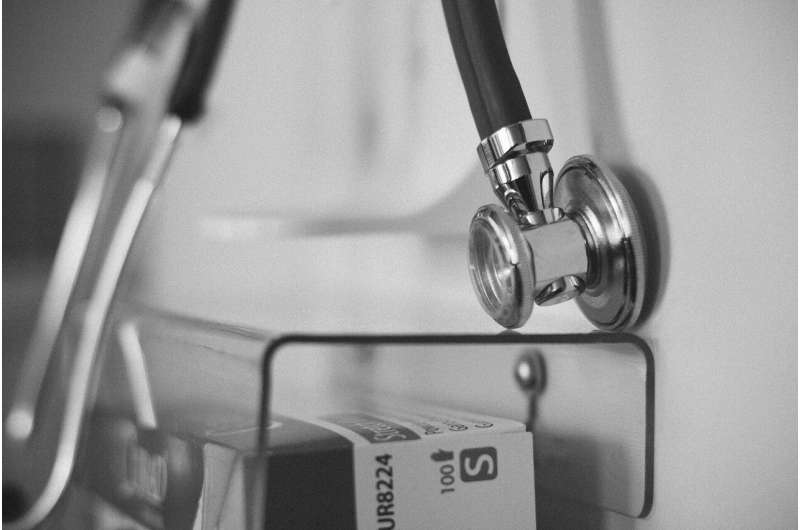
With intensive care beds filling up and health staff running short, a hospital in Bavaria’s Freising made an unprecedented decision to transfer a coronavirus patient to northern Italy for treatment.
Through the highs and lows spanning 18 months of the pandemic, Germany had on many occasions taken in patients from neighbouring countries as hospitals elsewhere ran out of space.
But a fourth ferocious wave has sent infections to record highs in Europe’s biggest economy, putting hospitals in parts of the country under immense strain and forcing some to look elsewhere in the EU for help.
While the absolute number of patients in intensive care still lies below the peak a year ago, this time around, hospitals are also ailing from the double whammy of a shortfall in personnel that has seriously hampered their ability to cope.
“Last week, on Wednesday or Thursday, we had to transfer a patient by helicopter to Merano,” said Thomas Marx, 43, medical director at the hospital in Freising, a town with 50,000 inhabitants that is about 350 kilometres (220 miles) away by road.
“We had no more capacity to receive them, and the surrounding Bavarian hospitals were also full,” he said.
The hospital also had to send another patient to another Bavarian town Regensburg over the weekend.
“We are at the limits of our capacity, which is why we have to resort to these means,” he said.
Marx’s service is handling 13 intensive care cases at the moment, three more than it has capacity for.
Five of them are coronavirus patients, all of whom are unvaccinated.
With Germany’s vaccination rate stagnating at under 70 percent in recent weeks, top health officials have pleaded for more to get the jab to stem the surge in infections.
Chancellor Angela Merkel made a new plea on Wednesday for the unvaccinated to get jabbed, saying “when enough people are vaccinated, that is the way out of the pandemic”.
In a bid to get more to take the jab, Germany’s parliament is poised to vote through new regulations for more curbs on the unvaccinated.
Under proposals drafted by the three parties in talks to form Germany’s new government, unvaccinated people will soon have to produce a negative test to use public transport or go to the office.
‘Incredibly frustrated’
At the intensive care unit of Munich Clinic Schwabing, senior doctor Niklas Schneider voiced frustration over vaccine resistance in some quarters.
“I find it really astonishing that vaccination is not accepted by the masses even though we have the possibility to get it. It is not completely understandable to me that so many people are allowing themselves to be misled by some horror stories about vaccines,” he said.
Like the hospital in Freising, the Munich clinic is at full capacity.
“The team is holding on, but we are incredibly frustrated… because at the end of the day we are the last resort for everything that is wrong with society as a whole,” said Schneider.
“The sick people who come to us, who are in mortal danger, we have to treat them, they need help. It doesn’t matter if they were previously anti-Corona, anti-vaccine or double-vaccinated, although we don’t have any of the latter in the ward.”
Besides the relatively low vaccine takeup compared to other parts of western Europe, health staff also complain that more should also have been done to bolster their capacity.
Only one in four German hospitals are able to maintain a regular intensive care service at the moment, said Spiegel magazine. Many others say that beyond demand, a major problem is an acute shortage of trained personnel.
Already a chronic problem before the pandemic, long hours, low pay and stress during the coronavirus crisis have only served to put even more people off a job in the healthcare sector.
Schneider noted that there are now far fewer health workers than in the first wave.
Likewise, his colleague in Freising voiced “incomprehension” over the latest crisis.
“I admire the calmness with which the staff operate, with which we face this new challenge with such professionalism,” Marx said.
Source: Read Full Article
